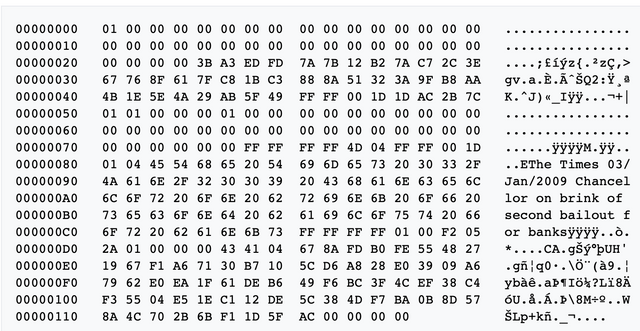Warning: How Bitcoin and the Cryptocurrency Industry could be Defeated: Fractional Reserve Bitcoin
This isn’t going to be a popular post, but it absolutely needs to be said and I don’t see anybody pointing out what I’m currently seeing as a strong possibility. There have been numerous hacks of centralized exchanges since the days of Mt Gox and the problem hasn’t gone away and many people are losing these funds because they treat these exchanges like banks. Exchanges introduce the possibility of fractional reserve bitcoin.
Unfortunately the vast majority of people have no idea how important it is to have a limited supply of a currency. They don’t understand how they have been fleeced because their bank accounts show the same numbers. But over time buying power has diminished even for the US dollar. A loaf of Wonder bread used to cost 45 cents when I was a kid. Now it is nearly 10x that. Gas was 25 cents a gallon. Now it’s 10x that. A good income in those days was 10K per year, but is the average income now 100K? Why did this happen? Because the Federal Reserve increased the money supply.
The industrial revolution has made counterfeiting and Keynesian economics (encourages people to spend by causing their money to rot if they hold it too long) seem reasonable because they were able to make it work by increased production. They discovered that if the average person has enough to eat and is at least minimally provided for (like cattle) that they generally won’t notice the theft and what they’re really missing. We the people have no clue how vast the theft has become (hint: we’re into the 10’s of trillions of USD in terms of buying power that is lost and I have to say that this is a conservative estimate).
Production has increased many times over in the past 50 years and at the same time, the Bretton Woods agreement was rescinded by Nixon destroying the dollar’s precious metals peg. With a precious metals peg, they had to make sure there was a small enough supply of the currency in case everyone came in to claim their one ounce of fine silver. Too much and they run out of silver before they run out of dollars. Removing this peg allowed the Federal Reserve the ability to print up money while goading companies to produce more to make up for the QE (literally counterfeiting). Legal adjustments over the years began to weaken the protections (such as the Volcker rule) against consumers leaving them subject to bank fraud and manipulation. By 2008, the derivatives market nearly collapsed the entire world economy. The Fed bailed out the banks into the hundreds of billions each and ended up adding an extra 10 trillion in debt for the US taxpayer.
Enter Bitcoin, which fixed this problem by instituting a hard cap limit of 21 million bitcoin hard baked into the protocol itself. Changing it would require 95% consensus. There was also mention of fiscal irresponsibility in the Bitcoin genesis block… “The Times 03/Jan/2009 Chancellor on brink of second bailout for banks”.
We are in the early days of bitcoin, but most people are still making the mistake of holding their crypto on an exchange. Unfortunately I just don’t see anywhere near close to the majority of people coming to an understanding of why it is important to hold your own crypto using your own hardware wallet, or about such things as the potential segwit donations attack… Not your keys, not your coins.
People avoid these complexities and want simple swipes on smart phones. For this reason, I strongly suspect that the majority of crypto holders will remain on the exchanges. Beyond the danger @anonymint points out above, if for some reason the powers that be decide to take over the exchanges, all that has really happened is that you changed banks. JPMorgan buys Coinbase, Wells Fargo buys Kraken and so on until all the liquidity rests on centralized exchanges. This will be hailed as for the benefit of all because no longer will exchanges such as Binance be operating under “wild west” rules, and they will also have found a way to eliminate cash once and for all. But the price will be…
“fractional reserve bitcoin”.
You say this is impossible? There will never be more than 21 million bitcoin? Sorry, but there’s a good chance that there’s already more than 21 million bitcoin if one were able to audit all the exchanges in the world and total up what everyone says they have. Maybe the reason why bitcoin isn’t going up as fast anymore is because the exchange values have already seriously diluted the supply of bitcoin possibly as high as 50 million BTC. How would we know if we never take them off the exchanges? See Trace Mayers proof of keys.
If you understood the first few paragraphs in this article, the reason should be very clear to you how this could be done. If you never withdraw to your hardware wallet, you haven’t technically forced the exchange to give you bitcoin on your hardware wallet by forcing a "truth" interaction on the bitcoin blockchain. They need only put you down for “X” amount of bitcoin at the time you bought in their central database and don’t even bother to go to the blockchain. If Coinbase or Binance just keep it in fiat and put it into something like Tether or DAI, they have other opportunities to use that liquidity to arbitrage everyone’s gains away.
Given that so few have what it takes to become personally sovereign over one’s finances these days, it wouldn’t surprise me that one day regulators pass legislation making it impossible to withdraw to a hardware wallet, then book of Revelations consequences would soon follow.
Please prove me wrong.



Привет друг. Я пишу на Русском языке. Вы можете перевести через переводчик . Я просто за вами следую с 2018 года. Правда я не знаю почему вас так долго не было. Когда я на вас подписавался у меня тогда не было знаний Правдо сейчас начинаются появлятся. Я Буду вам блогодарен если вы мне ответите . Еduards/
Я учусь в академии блокчейна IvanOnTech. Я начал чувствовать, что повторяюсь здесь и не хотел переставлять слова, чтобы повторять одно и то же. Но я чувствовал, что должен был сказать это, поскольку это, кажется, направление, в котором идет крипто.
Спасибо за ответ . Я тоже хочу учиться ...
Thanks I needed that.
(slap in the face)
I don't keep crypto on exchanges but can't prove it's not a problem.
A law that says you cant transfer bitcoin to an address?
That's literally its only function. ;)
I don't think you have enough respect for how undeniably valuable all the dapps of the future will be. The decentralized exchanges will eventually just be better than the centralized ones in every way. These networks arent going to be toothless forever.
Also the amount of cooperation between centralized exchanges required to shuffle around Bitcoin that doesnt exist is insane. Not an easy secret to keep whatsoever.
Please see my reply to JoeyArnoldVN. It has nothing to do with respect for the value of dapps and everything to do with human behavior and their laziness. I've been accepting crypto at my software business for almost 3 years now and still people ask to pay using a credit card even though I give a 50% discount for using crypto.
Right, because the network is so small and non existent no one wants to use crypto. So what happens when the decentralized version of things becomes easier to use than the centralized counterpart? You are not accounting for this.
Fractional reserve Bitcoin makes sense in the context of one exchange not being truthful about how much Bitcoin they have (which I doubt Coinbase is doing at the moment). It does not make sense in the context of a connected web of exchanges. No exchange is going to allow fake Bitcoin to be transferred to them.
To assume that we could somehow end up with the same system seems a bit alarmist at best. It's no secret you can loan the same money 10 times in a row with fractional reserve banking. It would be a huge secret in the context of Bitcoin. One that would cause big investors to exit and exchange and immediately make it insolvent.
This is where your idea comes in to make this action illegal. Making it illegal to transfer Bitcoin is just going to make users even more nervous and find even more innovative ways to exit the exchange in question... which would be easy because US law is only going to affect US exchanges.
This is not a problem we need to be worrying about for another 20-30 years.
By that time the landscape will be completely different.
Unrecognizable from where we are today.
I am. I made the switch to being paid in crypto for my software nearly 3 years ago long before the crowd started doing this. We have 1% adoption at best currently. Once the majority of people are accepting payment in crypto they will not feel the need to exit to fiat. We need 1 or 2 bull cycles like 2017 to achieve this.
So let's hope you're right and that people won't stay lazy or complacent about how they are getting paid and can take full responsibility by being their own bank. A tipping point destabilizing the dollar and other national fiat might achieve this.
I disagree. I don't think Bitcoin works that way. Bitcoin is supposed to be running on different computers in different countries and is supposed to be, at least in theory according to the laws of the programming, the cryptography itself, the blockchain system so to speak, to be in sync and transparent in regards to the transactions. For example, there are websites that can show you the transactions that are happening. You can add it all up. But Bitcoin is not digital money. It does not move. Bitcoin is not localized to the extent that they are like torrented or copied and mirrored and synced on many devices simultaneously, assuming that is how Bitcoin works, assuming that Bitcoin doesn't have any or too many backdoors, etc.
I don't think you read my post carefully enough. I am not saying that there's more than 21 million bitcoin on the blockchain. That is impossible. I'm saying that exchanges might be fractional reserving you if you don't force proof. In other words they put you down for X btc on their central database (call it fake bitcoin) and keep your fiat in something like Tether of DAI.
But you're talking about cryptocurrency exchanges like Poloniex which tend to be centralized either completely or to an extent. So, of course, these websites, these platforms, as middle men, can do things like that, similar to what central banks do with fractional reserving. You said that many people prefer the simplest things and I agree. So, people tend to prefer those exchange websites, etc, and I think that is what you said. I agree. It can be harder for people to take care of their Bitcoin private keys themselves, to have their own wallets. But my main point was in regards to cryptography itself as people can conflate between the exchange websites and the actual cryptocurrencies themselves.
I'm a developer and have been familiar with cryptography / hashing algorithms since the mid 90's having written my own (insecure but good enough) cryptography for software registration. I'm not talking about the blockchain itself, but the exchanges subverting / diverting transactions away from blockchain based proof. When you say "I don't think Bitcoin works that way", you seem to be saying that exchanges can't create central databases that never submit transactions to the mempool.
Bitcoin Theory:
If you're saying that the exchanges are or can be deceptive, then I agree. However, at least in theory, Bitcoin is supposed to be a blockchain thing that cannot be divided up and put in different places that would be isolated from the sync that Bitcoin is supposed to have.
Borg Bitcoin
I compare Bitcoin to the Borg in that they are all supposed to be connected in a sync. But I can't say that is how Bitcoin is. I don't really know if this is true but I can say this is what people say about Bitcoin.
Deceptive Exchanges
Can an exchange be deceptive? Sure. I don't doubt that they can try. I just don't know to what extent. So, I don't want to say how bad that an exchange can be. But at the same time, I also don't want to say that the actual number of Bitcoin tokens or Satoshi units can be altered. Well, I don't want to rule out that the exchanges can't create like a virtual bubble where transaction occur within the exchange that might be virtual and not connected to the actual Bitcoin blockchain network apart from when money actually exits the exchange. So, if you're talking about things that may happen within exchanges themselves, then I agree and those types of things wouldn't surprise me.
Bitcoin
I just wanted to make sure you're not saying that the exchanges would be actually changing how many Bitcoins there are. But I'm not saying what you are talking about is not a big issue.
You obviously aren't reading the article or have reading comprehension issues. It was stated clearly that it's impossible for there to be more than 21 m BTC on the blockchain. Please don't waste my time with nonsensical comments until you read.
Upvoted by @aagabriel for having similarities to the #informationwar tag, posts like this anyone can add the tag #informationwar so we can more easily find and upvote them! (by @aagabriel)
Ways you can help the @informationwar!
Congratulations @zoidsoft! You have completed the following achievement on the Steem blockchain and have been rewarded with new badge(s) :
You can view your badges on your Steem Board and compare to others on the Steem Ranking
If you no longer want to receive notifications, reply to this comment with the word
STOPDo not miss the last post from @steemitboard:
Vote for @Steemitboard as a witness to get one more award and increased upvotes!
Congratulations @zoidsoft! You received a personal award!
You can view your badges on your Steem Board and compare to others on the Steem Ranking
Do not miss the last post from @steemitboard:
Vote for @Steemitboard as a witness to get one more award and increased upvotes!